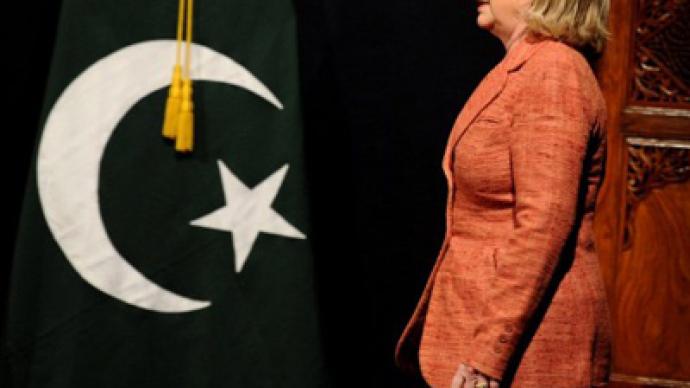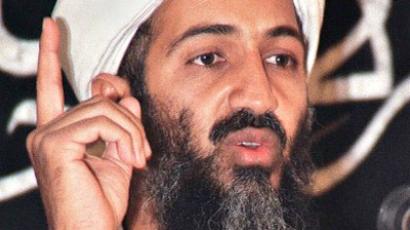Pakistani government walks a middle line between US and Taliban – historian

US Secretary of State Hillary Clinton made a surprise visit to Pakistan amid a breakdown in trust between Washington and Islamabad in the wake of the killing of Osama Bin Laden. She told Pakistan it must do more to target militants hiding on its territory
Lawrence Davidson, a professor of Middle East history at West Chester University in Pennsylvania, says that Clinton was too optimistic when she said that US-Pakistani relations “have reached a turning point.” “The problem is that the US has relations with Pakistani government and with the Pakistani military, but it doesn’t have very good relations with the Pakistani people,” said Davidson. “One of the problems that the Pakistani government confronts is that most of its population, probably more than 50 percent of it, and probably a high percentage of the security services, are sympathetic to the Taliban. Not only in Pakistan, but also the Taliban in Afghanistan.”He pointed out that under such circumstances, there is only so much the Pakistani government can do, and Clinton and the Obama administration pushing Islamabad to do more is not in Washington’s interest. “That is why you’re getting this sort of ‘yes-no-yes-no’ scenario, where the Pakistanis say, ‘Okay, we are an ally of yours, but only do so much,’ he said.Talking about the roughly $20 billion in aid that the US has provided to Pakistan over the years, Davidson says that most of the aid was actually military aid, “and a high percentage of that military aid is spent in the United States.” No one, he argued, should be lead into thinking that the Pakistani people actually benefited from any of that aid.Davidson says that the US wants help from Pakistan with Afghanistan and that the Pakistani government could put more effort into that help, but they are not willing to do so.“[The US] wants the border security [with Afghanistan], except that the Pakistani government and the Pakistani military are not able to do that – it would cause civil war in their country to do so,” he said.Lawrence Davidson says that there is an incipient civil war in Pakistan right now. Military forces get attacked all the time, it is impossible, for instance, to build a road without being attacked in Pakistan-Afghanistan border area. “The Pakistanis are not willing to push it as far as the Americans want to,” he continued. “Actually, the Pakistanis are feeling that the real problem is on the Indian border and not on the Afghan border. They want the aid, they don’t want the repercussions doing what the Americans want them to do, and they try to walk the middle line.”When asked how the situation might be resolved, Davidson said that it would only be resolved when the Americans leave Pakistan. However, he warned, when the US does leave, the Taliban will quickly come back.
Whatever the US State Department tells Pakistan, it is really all about tracks and tankers, because “the war in Afghanistan will stop tomorrow if the US does not have access to transportation routes in Pakistan,” declared Pepe Escobar, a correspondent for the Asia Times.“There is a convoy of 200 or even 400 trucks going out of Karachi to Afghanistan daily,” the journalist stated, explaining that an alternative route from Latvia to Afghanistan via Central Asia is 3,000-plus kilometers and does not allow military transportation – as agreed with Russia.“The Americans are hostage to the Pakistanis if they need to solve the Afghan war,” Escobar concluded.













